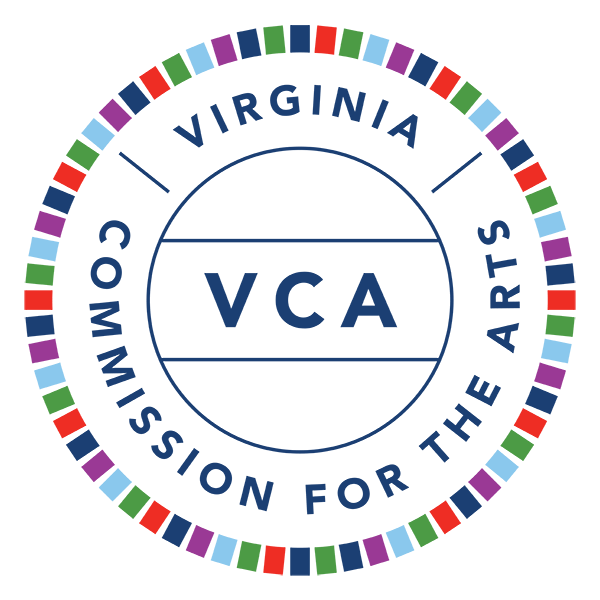Educational Background/Training
Bachelor of Science in Early Childhood Education, University of Virginia
Master of Arts in Adult and Higher Education, University of Oklahoma
Over 30 years of workshops and classes in a variety of disciplines, including drawing, painting and paper arts.
Maggie’s experience as a classroom teacher and with adult training has informed her style of teaching art with students of all ages.
One of Maggie’s loves is teaching people how to create sculptural pieces out of books. It requires a systematic approach to help people “bend their minds” around the process. Once they do, however, they are excited by their success. A true beginner can master the book-folding technique and have a unique artwork to share with others.
About the Artist/Ensemble
Maggie’s main artistic focus is on Altered Books and paper-arts, though she is also skilled with watercolor, acrylic and drawing. Since 2011, Maggie has focused almost entirely on creating artworks that explore the connection between the conceptual aspect of books and the creative output of the artwork. She uses books to create sculptural pieces, 2D artworks and installations. Her techniques include cutting, folding, carving, painting, paper-casting and various other exploratory techniques that sometimes include deconstruction and/or reconstruction.
Maggie’s art has been exhibited in local galleries and exhibitions as well as regional and national locations, including Artfields in SC (Award of Merit) and Made in Virginia at the Virginia MOCA.
When considering a new artwork, Maggie first considers the connection between idea and book. She either starts with a book and forms the artistic idea or uses the idea to find the book that will best express it. The techniques that she employs are adapted for each individual artwork to bring out the conceptual meaning. While some artworks are playful in nature, Maggie also encourages her viewers to explore serious themes such as climate change, social issues and current events.
As a former elementary-school teacher, Maggie has an educational approach to art. She strives to communicate an idea through the artwork itself and enjoys teaching others how to create their own works. Every person has a creative vein. With a supportive atmosphere and skillful instruction, everyone can explore their creativity and be proud of their accomplishments.
Educational Program Description
Exploring Altered Books
Objectives: Students will be able to:
• Define and give examples of “Altered Books” as a form of visual art. (MS SOL 3)
• Create an altered book in the shape of a heart. (MS SOLs 15 and 16)
• Create connections between the artwork theme (heart) with people and experiences in their lives. (MS SOL 1)
• Create an original altered book using a variety of media or techniques (MS SOL 1)
Target Audience: This residency is designed for middle-school students and can be adapted to upper elementary (grades 4-5), High School and adults (for example, a staff-enrichment workshop). See below for potential adaptations.
Length of Residency:
Minimum; 3 hours
Maximum: up to 5 full days
Space/Setting: The 3-hour residency can be in any classroom setting where students have a table-top space and chairs. A longer residency should be in an art classroom where students have access to a variety of media, such as paint, scissors, glue, etc.
Materials: Each student will need a hard-cover book that has 200-250 pages and a pencil. Printed templates will be provided. For a longer residency, students will need an additional book and access to art materials.
Single Day (3 hr.) Timeline:
• First Hour: Discussion about altered books with examples of my art, discussion and Q&A.
• Second Hour: Explanation of the Heart Book and folding technique, students begin their own work with guidance/assistance.
• Third Hour: Students complete their works, explanation of how to finish/trouble shoot issues with the technique, wrap-up discussion about the project.
Multi-Day Timeline:
• Day 1, first half: Create “Heart Book” following timeline above.
• Day 1, second half: Explore additional examples of altered books and book-manipulation techniques. Students begin creative process of conceptualizing ideas for original artworks.
• Days 2-5: Create original artworks using tools and techniques available from the art classroom with guidance and assistance as needed. End with recap and evaluation of the residency.
Potential Adaptations for the Residency:
• With elementary students: Shorten the time to two hours and focus mainly on creating the heart book artwork. Alternately, can break the session into two days, with the first day as an expanded exploration of Altered Books and the second day focused on creating the heart book.
• With HS students: Would be very similar to the middle-school program but with the guided discussion focused at the HS level.
• With staff: Single session focused on creating the book. A team-building and/or enrichment element can be incorporated by having participants complete a pre-activity to focus on aspects of their job/career that they love and/or qualities of their peers that they appreciate and admire. Thoughts that were generated in the pre-activity are then incorporated into the heart book as it’s being made.
This residency is unique and beneficial for learners because it explores a niche art genre. While artists have been altering books for decades, it has only recently become more prevalent. There are few professional artists who work and teach these techniques. Maggie will share her own experiences of trial and error with altering books and show the variety of ways that artists can explore this medium.
This proposal is put forward with the understanding that Maggie will happily collaborate with the teacher to adjust or adapt based on the needs of the students.
Fees
The hourly fee for a part-day workshop is $75 per hour (including travel time).
A day-long or multi-day workshop is $500 per day.
Other travel expenses will be determined by the location and workshop times.
Audiences
- Elementary Students
- Secondary (Middle/High School) Students
- College/University Students
- Adults

